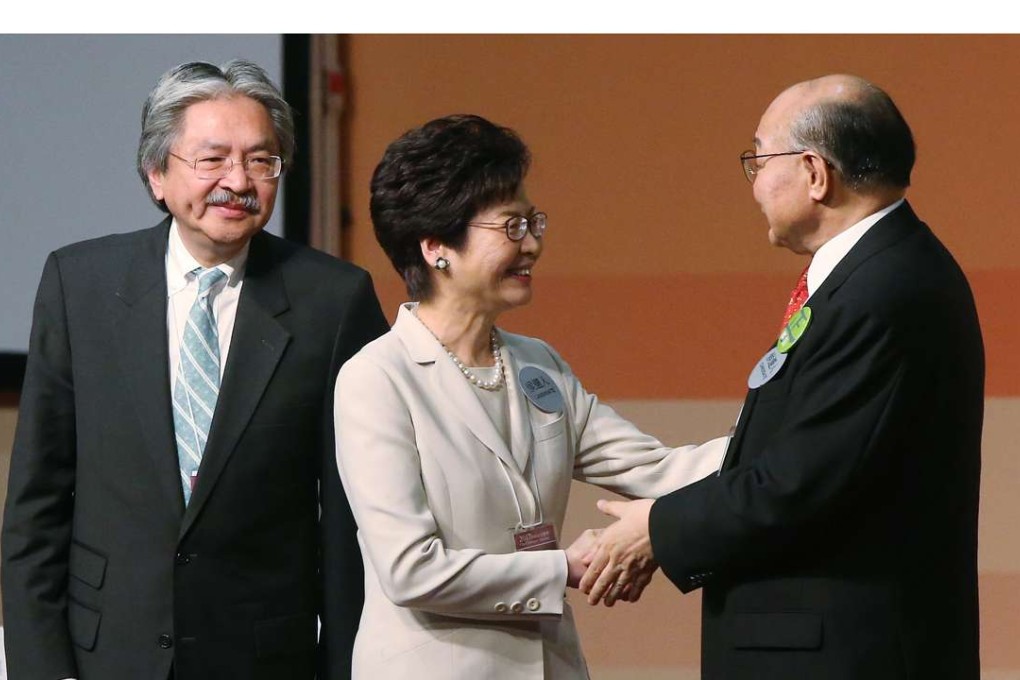Advertisement
Newly elected Hong Kong leader Carrie Lam vows to unite sharply divided city
Beijing’s preferred candidate promises more inclusive leadership and better ties between executive and legislature
Reading Time:3 minutes
Why you can trust SCMP

Carrie Lam Cheng Yuet-ngor was elected as Hong Kong’s first female leader on Sunday, promising to unite a divided city with a more inclusive style of governance and appealing for the chance to start a new chapter.
The former No 2 official, who secured 777 out of the 1,186 votes cast by the Election Committee tasked to pick the next chief executive, also vowed to find ways to improve relations between the executive and the legislature.
However, opposition politicians remained sceptical, given her non-committal response to their demands for universal suffrage. They also pointed out that she was picked by a small-circle electorate despite being eclipsed in the popularity stakes by John Tsang Chun-wah, who finished a distant secondwith 365 votes.
Advertisement
The third candidate, retired judge Woo Kwok-hing, managed only 21 votes.
The State Council’s Hong Kong and Macau Affairs Office said the election had been “open, fair and orderly”, and that Lam “fitted” Beijing’s requirements for a chief executive. The office will now get started on procedures to formally appoint Lam.
Advertisement
Advertisement
Select Voice
Choose your listening speed
Get through articles 2x faster
1.25x
250 WPM
Slow
Average
Fast
1.25x